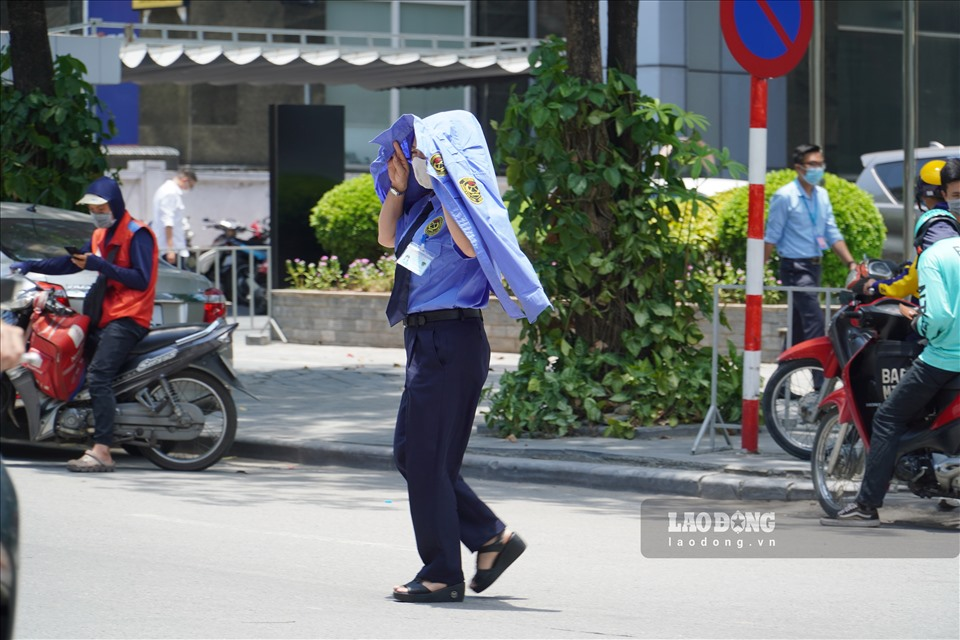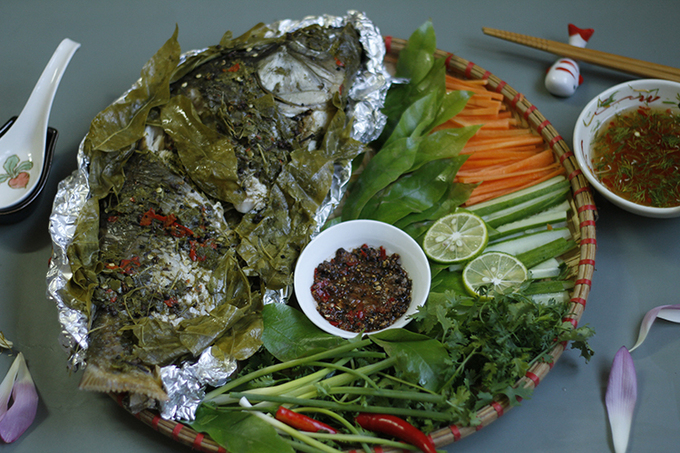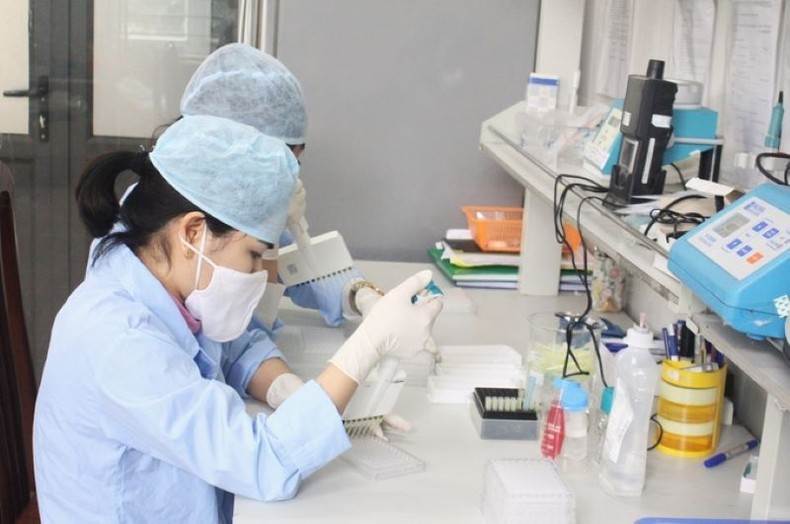Best ways to stay away from common heat-related illnesses
| Workers in Hanoi grapple with blazing weather | |
| Recipe: Steamed carp with dracontomelon leaves – summer taste, with video | |
| Perfect destination to hide away from scorching heat during Hanoi's summer |
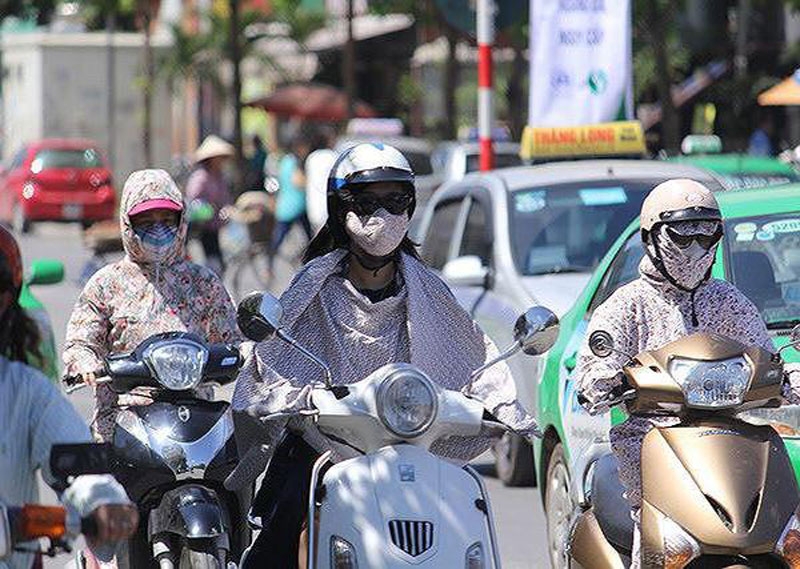 |
| In the face of this prolonged heat wave, people try everything to fight against the heat. Source: NDO |
Northern and central regions, including Hanoi, have been hit by a major hot spell this week as temperatures climb to highs of over 40 degrees Celsius. This prolonged heat wave can put us at risk of heat illness.
Three common heat-related illnesses include heat cramps, heat exhaustion, and heatstroke. Heat cramps and heat exhaustion are less severe than heatstroke, but they can all be avoided if you take time to rest, drink enough fluids, and spend time in cool areas when they’re available.
According to Australian Red Cross, the heat can affect anyone, but some people are more at risk because their body doesn't regulate heat well, including: older people, babies and young children, people with mental-health conditions, people on certain medications, people with chronic conditions (such as breathing or heart problems), people with limited mobility.
As heat waves are common and intense in summer, the risk continues to rise. Here’s how to make sure you’re prepared.
Depending on a person’s age, presence of chronic medical conditions, and the amount of fluids they’ve consumed, heatstroke — especially in temperatures in the triple digits — can occur in just a few short hours.
Usually, a healthy core body temperature is somewhere around 37 C. But if it climbs to 40 C internal organs — including your brain — may become damaged.
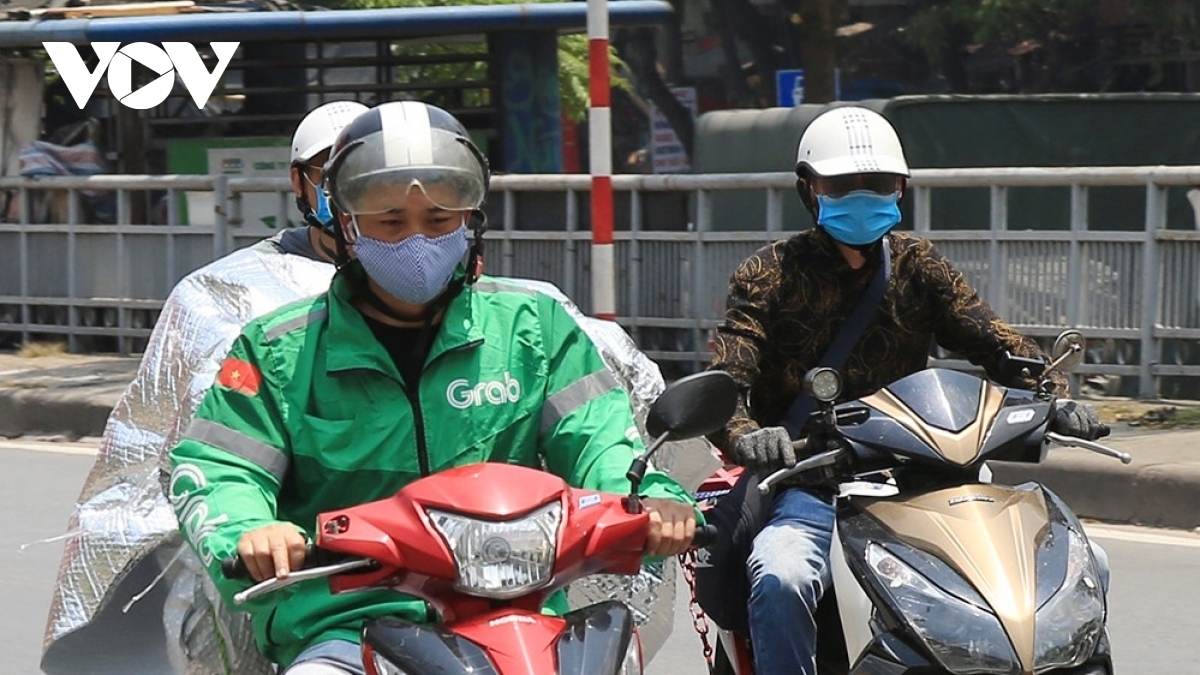 |
| Shippers are busier around midday following eateries being forced to close and only allow take-away services as a means of combatting the Covid-19 pandemic. Source: VOV |
From the least serious heat-related illness to the most serious, here’s how to identify and treat them:
Heat cramps: The result of dehydration and low salt levels
Symptoms
Painful muscle cramps and spasms usually in the legs, arms, and abdomen
Heavy sweating
What To Do
Stop the activity and get to a cool place to rest
Apply firm pressure on the cramping muscles or gently massage them to relieve the spasms
Give sips of water unless there’s nausea, then do not give water
Ease cramps by stretching
Try ice packs to see if they help
Heat Exhaustion: The result of dehydration and prolonged over-exertion
Symptoms
Fatigue
Heavy sweating
Weakness
Cool, pale, clammy skin
Fast, weak pulse
Possible muscle cramps
Dizziness
Nausea or vomiting
Fainting
What To Do
Move to a cooler environment (air conditioned room, underneath a fan)
Lay the person down and loosen or remove their clothing
Apply cool, wet cloths to key areas, such as the groin, armpits, back and neck or bathe in cool water
Offer sips of water
Get medical help right away if there’s no improvement within an hour or if they vomit more than once
Heatstroke: The result of the body’s inability to regulate its temperature. It can be life-threatening.
Symptoms
Altered mental state (disorientation, confusion)
Throbbing headache, confusion, nausea, dizziness, shallow breathing
Body temperature above 39.4°C
Hot, red, dry skin
Lack of sweating
Rapid and strong pulse
Fainting or loss of consciousness
What To Do
Seek immediate medical attention and begin cooling the person while waiting
Move to a cooler or air-conditioned place
Cool the body with cool cloths or a bath
Do not give fluids
Depending on the severity of the heatstroke, recovery can take several days. Left untreated, experts say, heatstroke can cause lasting damage to your brain, muscles, kidneys, and other important organs. Sometimes imaging, intravenous fluid resuscitation and medication are required.
| Prevention is always better than cure. We should take appropriate measures no matter working at indoor or outdoor workplace (e.g., warehouses, docks, construction sites, container yards, kitchens and laundry rooms etc.). For instance, wearing loose-fitting, lightweight and light-coloured clothing will facilitate perspiration and reduce the body heat. Taking rest in a cool place at certain time of work is also recommended. In addition, you are advised to drink sufficient amount of water or other appropriate beverages to replenish fluid and electrolytes lost, avoid beverages that include alcohol, coffee, tea or caffeine to prevent dehydration. Last but not least, give yourself time to acclimatize. If you’re not used to the heat, allow time for your body to adjust. This is particularly true for people who might be moving to a new climate or travelling. |
 | Daily Horoscope for June 4: Astrological Prediction for Zodiac Signs with Love, Money, Career and Health Daily Horoscope for June 4: Mars in Cancer is quite active today, but it makes no major aspects to any planets. The warrior planet shares ... |
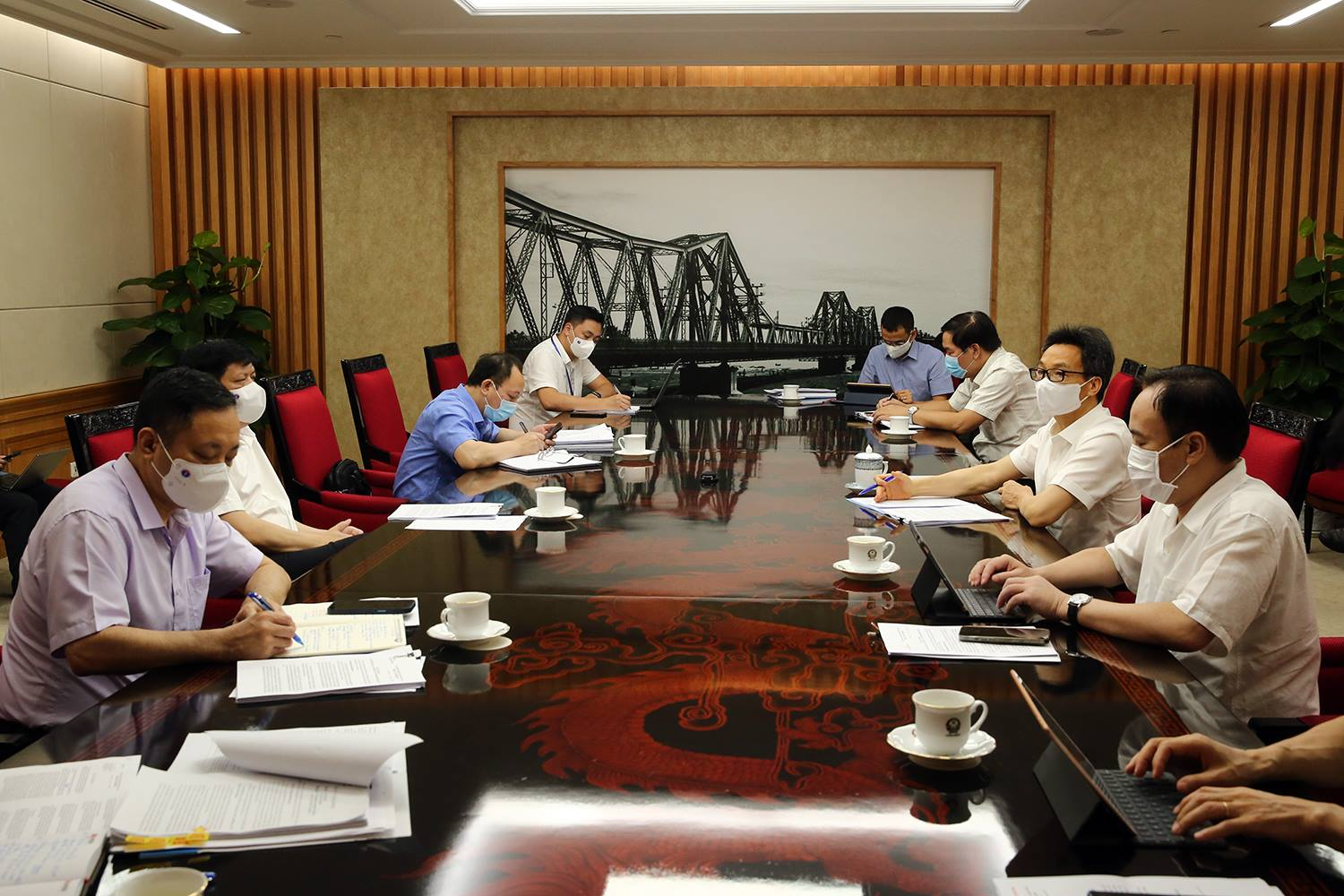 | Vietnamese leaders stress removing barriers for Covid-19 vaccine On the morning of May 31, Deputy Prime Minister Vu Duc Dam listened to the Ministry of Health's report on the situation and progress of ... |
 | Vietnam Airlines signs up for digital health passport The digital health passport IATA Travel Pass can be considered as the key to opening the border, facilitating travel between countries, meeting all entry requirements ... |
Recommended
 Handbook
Handbook
Vietnam Moves Up 8 Places In World Happiness Index
 Handbook
Handbook
Travelling Vietnam Through French Artist's Children Book
 Multimedia
Multimedia
Vietnamese Turmeric Fish among Best Asian Dishes: TasteAtlas
 Handbook
Handbook
From Lost to Found: German Tourist Thanks Vietnamese Police for Returning His Bag
Popular article
 Handbook
Handbook
Prediction and Resolution for the Disasters of Humanity
 Handbook
Handbook
16 French Films To Be Shown For Free During Tet Holiday In Vietnam
 Handbook
Handbook
Unique Cultural and Religious Activities to Welcome Year of the Snake
 Handbook
Handbook

